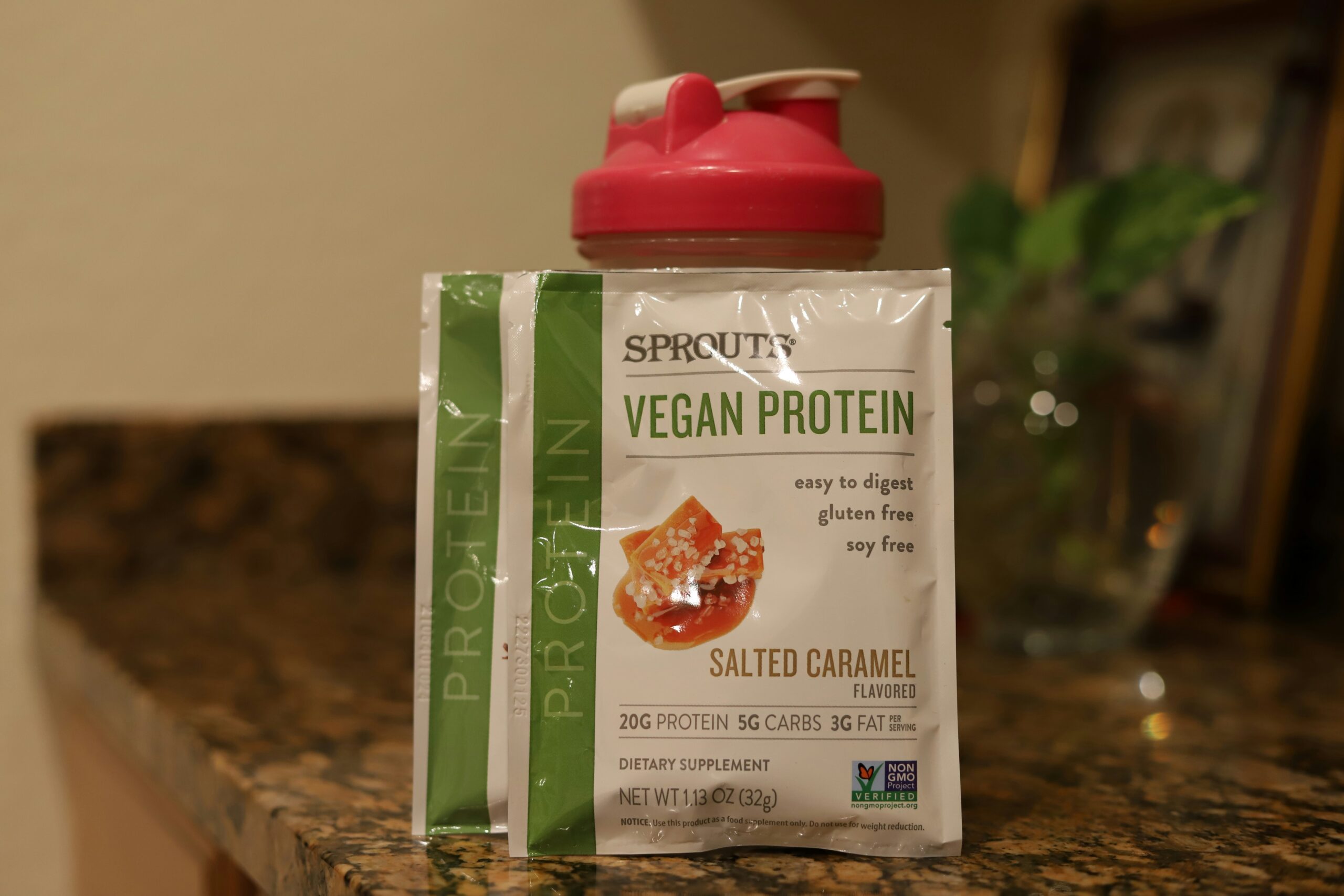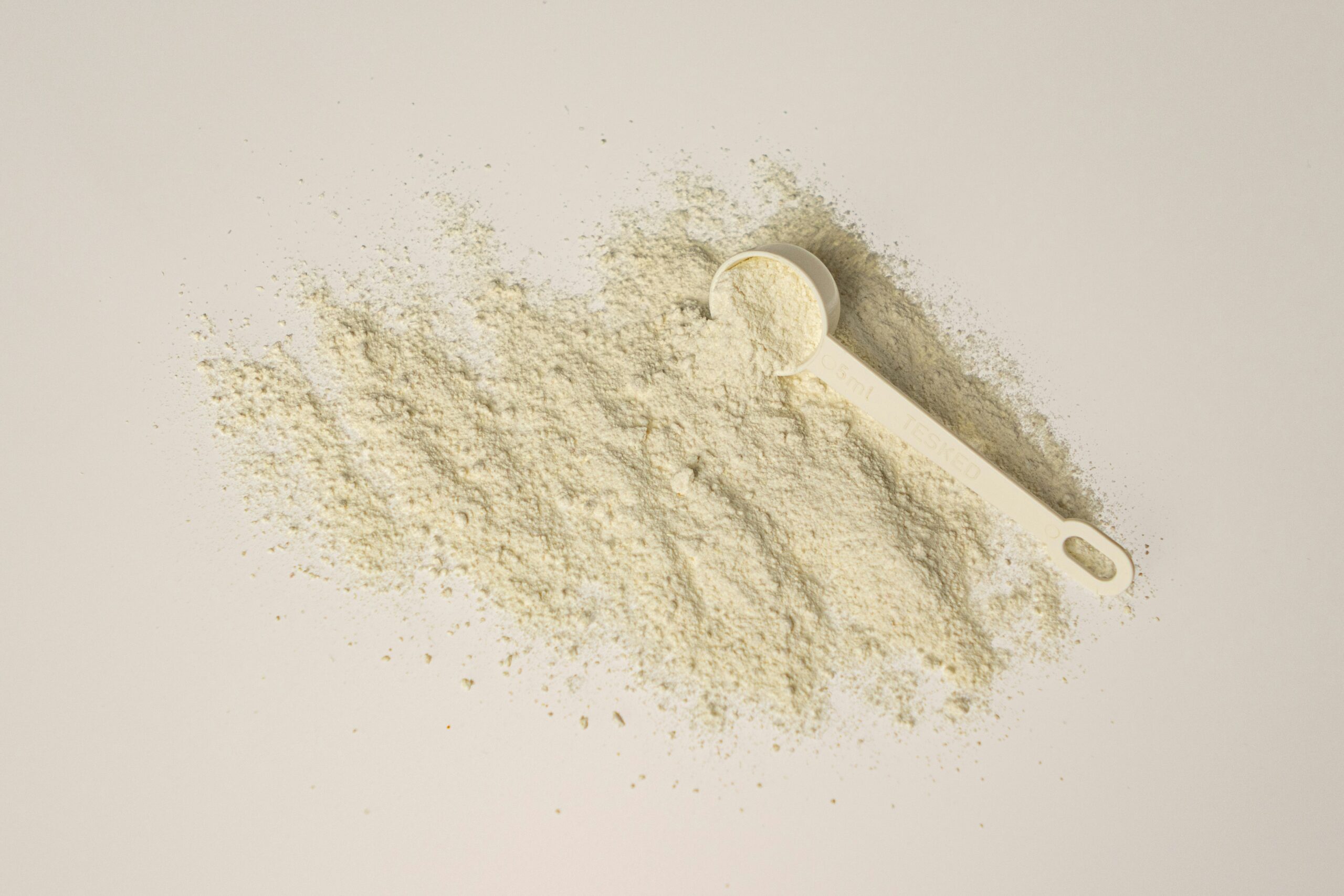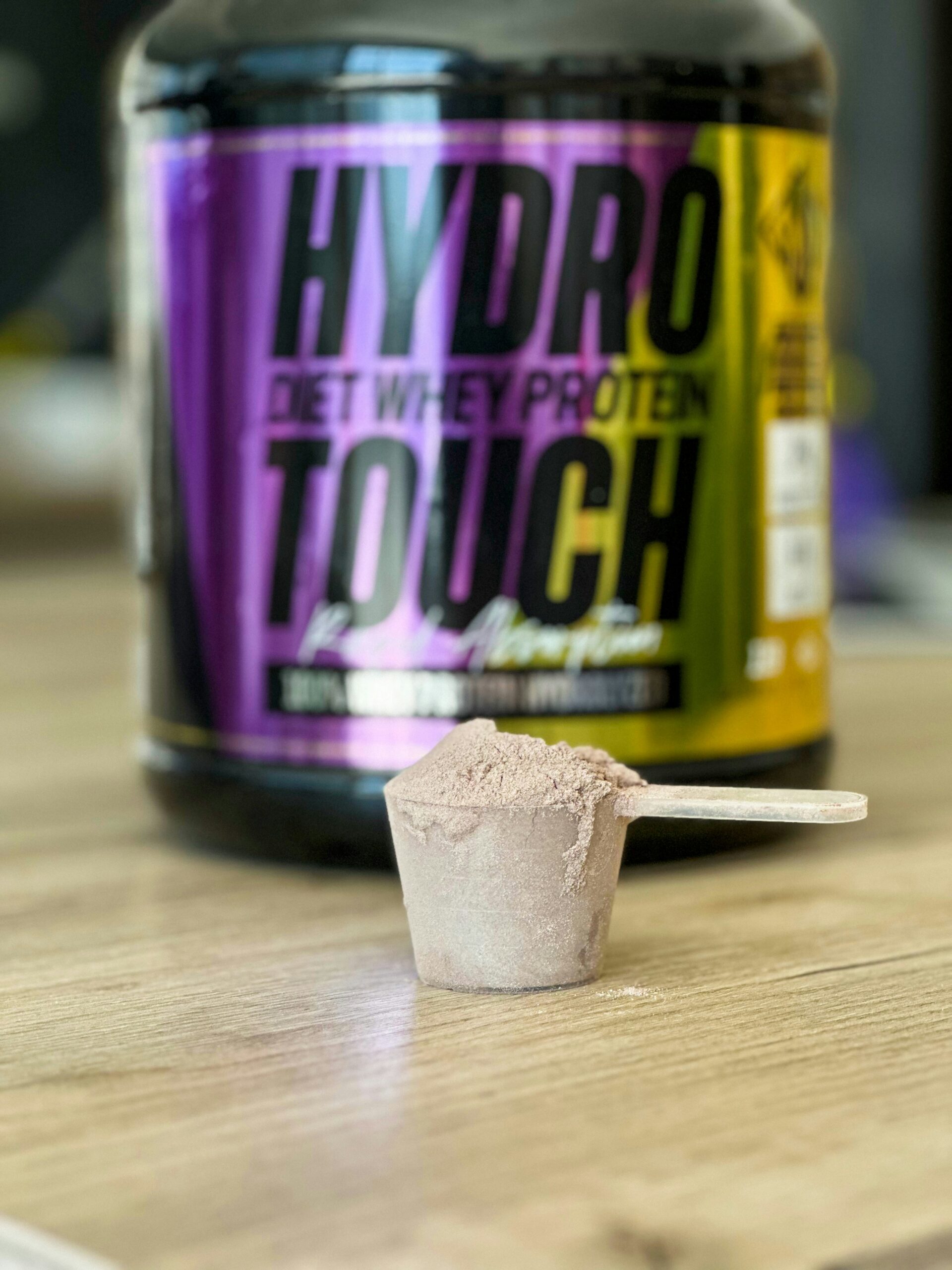As more people embrace plant-based diets, vegan protein powders have become increasingly popular. They offer a convenient way to boost protein intake without relying on animal products. Whether you’re vegan, vegetarian, or simply looking to reduce your consumption of animal-based proteins, this guide will help you understand the benefits of vegan protein powders, explore the different types available, and provide tips on how to choose the best one for your needs.
Why Choose Vegan Protein Powder?
Vegan protein powders are made from a variety of plant-based sources, offering a sustainable and cruelty-free alternative to traditional protein powders like whey and casein. Here are some of the key benefits of choosing vegan protein powder:
1. Environmentally Friendly
Plant-based protein powders have a lower environmental impact compared to animal-based proteins. They require fewer resources like water and land, and produce fewer greenhouse gas emissions, making them a more sustainable choice.
2. Hypoallergenic
Many people are sensitive or allergic to dairy, which is a common ingredient in whey and casein protein powders. Vegan protein powders are free from common allergens like lactose and gluten, making them suitable for those with dietary restrictions or sensitivities.
3. Rich in Nutrients
Vegan protein powders are often packed with additional nutrients like fiber, vitamins, and minerals that are naturally found in plants. They also contain antioxidants and phytonutrients, which can support overall health and wellness.
4. Supports Digestive Health
Plant-based protein powders are generally easier to digest compared to dairy-based proteins. They are often free from artificial additives and contain natural sources of fiber, which can promote healthy digestion.
5. Ethical and Cruelty-Free
By choosing vegan protein powder, you’re supporting products that are cruelty-free and align with ethical and animal welfare principles. This makes them an ideal choice for those who prioritize animal rights and environmental sustainability.
Types of Vegan Protein Powders
Vegan protein powders come in a variety of types, each with its own unique nutritional profile and benefits. Here are some of the most common types:
1. Pea Protein
What It Is: Pea protein is derived from yellow split peas and is one of the most popular vegan protein powders.
Benefits: Pea protein is rich in branched-chain amino acids (BCAAs), which support muscle recovery and growth. It’s also hypoallergenic, easily digestible, and has a mild taste, making it a versatile option for shakes and recipes.
Top Pick: Orgain Organic Protein – A high-quality pea protein powder that is organic, non-GMO, and blends well with other ingredients.
2. Hemp Protein
What It Is: Hemp protein is made from the seeds of the hemp plant and is a natural, minimally processed protein source.
Benefits: Hemp protein is rich in omega-3 and omega-6 fatty acids, which support heart health. It also contains fiber, which can aid in digestion and keep you full for longer. Hemp protein has a slightly nutty flavor and is a good source of essential amino acids.
Top Pick: Nutiva Organic Hemp Protein – A clean, organic hemp protein powder that is rich in fiber and healthy fats.
3. Brown Rice Protein
What It Is: Brown rice protein is made from whole grain brown rice and is a hypoallergenic protein source.
Benefits: Brown rice protein is easy to digest and a good option for those with food sensitivities. It’s also rich in essential amino acids and has a neutral flavor, making it easy to mix into various recipes.
Top Pick: Sunwarrior Classic Protein – A high-quality brown rice protein powder that is organic, non-GMO, and ideal for those with allergies.
4. Soy Protein
What It Is: Soy protein is derived from soybeans and is one of the few plant-based proteins that is considered a complete protein, containing all nine essential amino acids.
Benefits: Soy protein has been extensively studied for its health benefits, including its ability to support muscle growth, reduce cholesterol levels, and promote heart health. It has a smooth texture and blends well into shakes and smoothies.
Top Pick: NOW Sports Soy Protein Isolate – A non-GMO soy protein isolate that provides a high-protein, low-fat option for vegans.
5. Pumpkin Seed Protein
What It Is: Pumpkin seed protein is made from the seeds of pumpkins and is a relatively new addition to the vegan protein powder market.
Benefits: Pumpkin seed protein is rich in magnesium, zinc, and iron, which are important for overall health. It also contains healthy fats and fiber, making it a nutritious option for those looking to boost their protein intake.
Top Pick: Pumpkin Seed Protein by Sprout Living – A clean, organic pumpkin seed protein powder that is free from additives and rich in nutrients.
How to Choose the Best Vegan Protein Powder
With so many options available, choosing the best vegan protein powder can be overwhelming. Here are some factors to consider when making your decision:
1. Protein Content
Look for a protein powder that offers a high protein content per serving, typically around 15-25 grams. This ensures you’re getting enough protein to support your dietary goals.
2. Amino Acid Profile
Not all vegan protein powders are complete proteins, meaning they don’t contain all nine essential amino acids. If you’re using a single-source protein powder, consider combining it with other plant-based proteins to create a complete amino acid profile.
3. Flavor and Mixability
Choose a flavor that you enjoy and a protein powder that mixes well with your preferred liquids. Some vegan protein powders can have a gritty texture or strong flavor, so it’s important to find one that suits your taste.
4. Added Ingredients
Check the label for added sugars, artificial sweeteners, or unnecessary fillers. The best vegan protein powders are minimally processed and free from artificial additives.
5. Dietary Preferences
Consider any dietary restrictions or preferences you may have, such as gluten-free, non-GMO, or organic. Many vegan protein powders cater to specific dietary needs, so choose one that aligns with your lifestyle.
How to Incorporate Vegan Protein Powder into Your Diet
Adding vegan protein powder to your diet is simple and versatile. Here are some easy ways to incorporate it into your daily routine:
1. Protein Shakes and Smoothies
The most common way to use vegan protein powder is by blending it into shakes or smoothies. Mix a scoop of protein powder with water, almond milk, or your favorite plant-based milk, and blend with fruits, vegetables, and other superfoods.
Recipe Idea:
- 1 scoop of pea protein powder
- 1/2 avocado
- 1 banana
- 1 tablespoon of chia seeds
- 1 cup of almond milk
Blend until smooth for a creamy, nutrient-packed shake that’s perfect for breakfast or post-workout.
2. Baking
Vegan protein powder can be used in baking to add a protein boost to your favorite recipes. Replace a portion of the flour with protein powder in recipes for pancakes, muffins, or cookies.
Recipe Idea:
- 1/2 cup of oat flour
- 1 scoop of hemp protein powder
- 1/4 cup of maple syrup
- 1/4 cup of almond milk
- 1 teaspoon of baking powder
Mix all ingredients until smooth, then bake at 350°F (175°C) for 20 minutes for delicious, protein-packed muffins.
3. Protein-Packed Breakfasts
Start your day with a protein-rich breakfast by adding vegan protein powder to your oatmeal, chia pudding, or smoothie bowls.
Recipe Idea:
- 1/2 cup of rolled oats
- 1 scoop of soy protein powder
- 1 tablespoon of almond butter
- 1 cup of almond milk
Cook the oats as usual, then stir in the protein powder and almond butter for a filling, high-protein breakfast.
4. Healthy Snacks
Create healthy, protein-rich snacks by adding vegan protein powder to energy balls, protein bars, or yogurt parfaits.
Recipe Idea:
- 1 cup of rolled oats
- 1/2 cup of pumpkin seed protein powder
- 1/4 cup of almond butter
- 1/4 cup of honey or maple syrup
Mix all ingredients, roll into balls, and refrigerate for a quick, grab-and-go snack that’s packed with protein.
Common Mistakes to Avoid with Vegan Protein Powder
While vegan protein powders offer many benefits, it’s important to avoid common mistakes that could hinder your progress:
1. Overconsumption
More protein isn’t always better. Consuming too much protein can lead to excess calorie intake, which may counteract your health goals. Stick to the recommended serving size and balance your intake with other nutrients.
2. Relying Solely on Protein Shakes
While protein shakes are convenient, they shouldn’t replace whole foods in your diet. Make sure you’re still eating a balanced diet rich in fruits, vegetables, whole grains, and other plant-based proteins.
3. Ignoring the Ingredient List
Not all vegan protein powders are created equal. Be sure to read the ingredient list carefully and choose products that are free from artificial additives, fillers, and excessive sugars.



